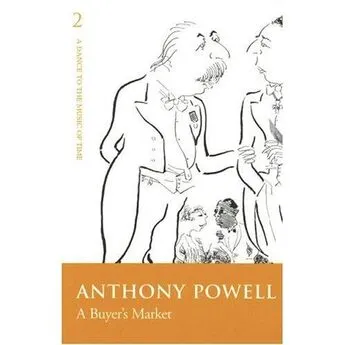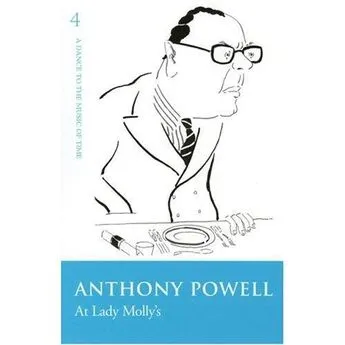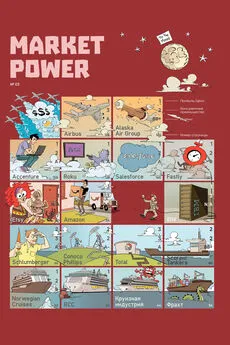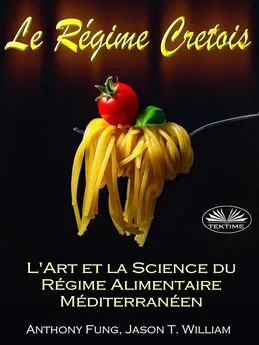Anthony Powell - A Buyers Market
- Название:A Buyers Market
- Автор:
- Жанр:
- Издательство:Arrow
- Год:2005
- ISBN:нет данных
- Рейтинг:
- Избранное:Добавить в избранное
-
Отзывы:
-
Ваша оценка:
Anthony Powell - A Buyers Market краткое содержание
Anthony Powell's universally acclaimed epic A Dance to the Music of Time offers a matchless panorama of twentieth-century London. Now, for the first time in decades, readers in the United States can read the books of Dance as they were originally published-as twelve individual novels-but with a twenty-first-century twist: they're available only as e-books. The second volume, A Buyer's Market (1952), finds young Nick Jenkins struggling to establish himself in London. Amid the fever of the 1920s, he attends formal dinners and wild parties; makes his first tentative forays into the worlds of art, culture, and bohemian life; and suffers his first disappointments in love. Old friends come and go, but the paths they once shared are rapidly diverging: Stringham is settling into a life of debauchery and drink, Templer is plunging into the world of business, and Widmerpool, though still a figure of out-of-place grotesquerie, remains unbowed, confident in his own importance and eventual success. A Buyer's Market is a striking portrait of the pleasures and anxieties of early adulthood, set against a backdrop of London life and culture at one of its most effervescent moments.
A Buyers Market - читать онлайн бесплатно полную версию (весь текст целиком)
Интервал:
Закладка:
At either end of the mantelpiece stood a small oval frame — the pair of them uniformly ornamented with sea shells — one of which contained a tinted daguerreotype of Mr. Deacon’s mother, the other enclosing a bearded figure, the likeness, so it appeared, of Walt Whitman, for whom Mr. Deacon possessed a profound admiration. The late Mrs. Deacon’s features so much resembled her son’s as for the picture, at first sight, almost to cause the illusion that he had himself posed, as a jeu d’esprit , in crinoline and pork-pie hat. Juxtaposition of the two portraits was intended, I suppose, to suggest that the American poet, morally and intellectually speaking, represented the true source of Mr. Deacon’s otherwise ignored paternal origins.
The atmosphere of the room had already become rather thick when I arrived upstairs that night, and a good many bottles and glasses were set about on occasional tables. After the meticulous process of selection to which they had been subjected, the first sight of the people assembled there came as something of an anti-climax; and Mr. Deacon’s method of choosing was certainly not made at once apparent by a casual glance round the room. A few customers had been invited, picked from the ranks of those specially distinguished in buying expensive “antiques.” These were mostly married couples, middle-aged to elderly, their position in life hard to define with any certainty. They laughed rather uneasily throughout the evening, in due course leaving early. The rest of the gathering was predominantly made up of young men, some of whom might reasonably have been considered to fall within Mr. Deacon’s preferential category of “respectable,” together with others whose claim to good repute was, at least outwardly, less pronounced: in some cases, even widely open to question.
There were, however, two persons present who, as it now seems to me, first revealed themselves at Mr. Deacon’s party as linked together in that mysterious manner that circumscribes certain couples, and larger groups of human beings: a subject of which I have already spoken in connection with Widmerpool and myself. These two were Mark Members and Quiggin; although at that period I was, of course, unable to appreciate that this pair had already begun the course of their long pilgrimage together, regarding them as no more connected with each other than with myself. I had not set eyes upon Quiggin since coming down from the university, although, as it happened, I had already learnt that he was to be invited as the result of a chance remark let fall by Gypsy during discussion of arrangements to be made for the party.
“Don’t let Quiggin get left over in the house at the end of the evening,” she had said. “I don’t want him snuffling round downstairs after I have just dropped off to sleep.”
“Really, the ineffable vanity of woman,” Mr. Deacon had answered sharply. “Quiggin will not molest you. He thinks too much about himself, for one thing, to bother about anyone else. You can set your mind at rest on that point.”
“I’d rather be safe than sorry,” said Gypsy. “He showed signs of making himself quite a nuisance the other night, you may like to know. I’m just warning you, Edgar.”
Thinking the person named might well be the same Quiggin I had known as an undergraduate, I inquired about his personal appearance.
“Very plain, I’m afraid, poor boy,” said Mr. Deacon. “With a shocking North-Country accent — though I suppose one should not say such a thing. He is a nephew of a client of mine in the Midlands. Rather hard up at the moment, he tells me, so he lends a hand in the shop from time to time. I’m surprised you have never run across him here. It gives him a pittance — and leisure to write. That’s where his heart is.”
“He is J. G. Quiggin, you know,” said Gypsy. “You must have read things by him.”
She may have thought that the importance she had ascribed to Quiggin as a potential source of nocturnal persecution of herself had been under-estimated by me, through ignorance of his relative eminence as a literary figure; and it was certainly true that I was unfamiliar with the name of the magazine mentioned by her as the organ to which he was said most regularly to contribute.
“No doubt about Quiggin’s talent,” said Mr. Deacon. “Though I don’t like all his ideas. He’s got a rough manner, too. All the same, he made himself very useful disposing of some books of a rather awkward sort — you need not snigger like that, Barnby — that I wanted to get rid of.”
Trying to recall terms of our mutual relationship when we had last seen anything of each other, I could remember only that I had met Quiggin from time to time up to the early part of my second year at the university, when, for some reason, he had passed completely out of my life. In this process of individual drifting apart, there was, where university circles were concerned, of course, nothing out of the way: undergraduate acquaintance flourishing and decaying often within a matter of weeks. I could remember commenting at one of Sillery’s tea-parties that Quiggin seemed not to have been about for some time, at which, so far as I could recall, Sillery, through the medium of considerable verbal convolution, had indicated, or at least implied, that Quiggin’s scholarship had been withdrawn by his college on grounds of idleness, or some other cause of dissatisfaction to the authorities; and that, not long after this had happened, he had been “sent down.” That story had been, I thought, more or less substantiated by Brightman, a don at Quiggin’s college. Certainly Brightman, at some luncheon party, had referred to “that path trodden by scholarship boys whose mental equipment has been somewhat over-taxed at an earlier stage of their often injudiciously promoted education,” and it was possible that he had used the case of Quiggin as an illustration.
I was rather impressed to hear that in the unfamiliar form of “J. G. Quiggin” this former acquaintance was already known as a “writer”; and admired, if only by Gypsy Jones. I also felt a little ashamed, perhaps merely on account of this apparent notoriety of his, to think, after finding in him something that had interested, if not exactly attracted, me, I had so easily forgotten about his existence.
My first sight of him at the party suggested that he had remained remarkably unchanged. He was still wearing his shabby black suit, the frayed trousers of which were maintained insecurely by a heavy leather belt with a brass buckle. His hair had grown a shade sparser round the sides of his dome-like forehead, and he retained that look of an undomesticated animal of doubtful temper. At the same time there was also his doggy, rather pathetic look about the eyes that had reminded me of Widmerpool, and which is a not uncommon feature of those who have decided to live by the force of the will. When we talked, I found that he had abandoned much of the conscious acerbity of manner that had been so much a part of social equipment at the university. It was not that he was milder — on the contrary, he seemed more anxious than ever to approach on his own terms every matter that arose — but he appeared to have come much nearer to perfection of method in his particular method of attacking life, so that for others there was not, as in former days, the same field of conversational pitfalls to be negotiated. No doubt this greater smoothness of intercourse was also to be explained by the fact that we had both “grown up” in the year or two that had passed. He asked some searching questions, comparable to Widmerpool’s, regarding my firm’s publications, almost immediately suggesting that he should write a preface for a book to be included in one or other of some series mentioned to him.
It was at that stage we had been joined by Members, rather to my surprise, because, as undergraduates, Members and Quiggin had habitually spoken of each other in a far from friendly manner. Now a change of relationship seemed to have taken place, or, it would perhaps be more exact to say, appeared desired by each of them; for there was no doubt that they were prepared, at least momentarily, to be on the best of terms. The three of us talked together, at first perhaps with a certain lack of ease, and then with greater warmth than I remembered in the past.
I had, in fact, met Members with Short, who was a believer in what he called “keeping up with interesting people,” soon after I had come to live in London. This taste of Short’s, with whom I occasionally had dinner or saw a film — as we had planned to do on the night when I had cut him for the Walpole-Wilson dinner-party — resulted in running across various former acquaintances not seen regularly as a matter of course, and Members, by now of some repute as a littérateur , was one of these. To find him at Mr. Deacon’s was unexpected, however, for I had supposed Members, for some reason, to frequent literary circles of a more sedate kind, though quite why I should have thus regarded him I hardly know.
In contrast with Quiggin, Mark Members had altered considerably since his undergraduate period, when he had been known for the relative flamboyance of his dress. Him too I remembered chiefly from my first year at the university, though this was not because he had left prematurely, but rather on account of his passing into a world of local hostesses of more or less academical complexion, which I did not myself frequent. If I had considered the matter, it was to some similar layer of society in London that I should have pictured him attached: perhaps a reason for supposing him out of place at Mr. Deacon’s. Possibly these ladies, most of them hard-headed enough in their, own way, had been to some extent responsible for the almost revolutionary changes that had taken place in his appearance; for, even since our meeting with Short, Members had worked hard on his own exterior, in much the same manner that Quiggin had effected the interior modifications to which I have already referred.
There had once, for example, been at least a suggestion of side-whiskers, now wholly disappeared. The Byronic collar and loosely tied tie discarded, Members looked almost as neat round the neck as Archie Gilbert. His hair no longer hung in an uneven fringe, but was brushed severely away from his forehead at an acute angle; while he had also, by some means, ridded himself of most of his freckles, acquiring a sterner expression that might almost have been modelled on Quiggin’s. In fact, he looked a rather distinguished young man, evidently belonging to the world of letters, though essentially to the end of that world least well disposed to Bohemianism in its grosser forms. He had been brought — Mr. Deacon had finally declared himself resigned to a certain number of uninvited guests, “modern manners being what they are”—by a strapping, black-haired model called Mona, a friend of Gypsy’s belonging, so Barnby reported, to a stage of Gypsy’s life before she was known to Mr. Deacon.
Short had told me that Members did occasional work for one of the “weeklies”—the periodical, in fact, that had commented rather disparagingly on Prince Theodoric’s visit to England — and I had, indeed, read, with decided respect, some of the pieces there written by him. He had, I believed, failed to secure the “first” expected of him, by Sillery and others, at the end of his university career, but, like Bill Truscott in another sphere, he had never relinquished the reputation of being “a coming young man.” Speaking of reviews Written by Members, Short used to say: “Mark handles his material with remarkable facility,” and, not without envy, I had to agree with that judgment; for this matter of writing was beginning to occupy an increasing amount of attention in my own mind. I had even toyed with the idea of attempting myself to begin work on a novel: an act that would thereby have brought to pass the assertion made at La Grenadière, merely as a conversational pretext to supply an answer to Widmerpool, to the effect that I possessed literary ambitions.
Читать дальшеИнтервал:
Закладка:









